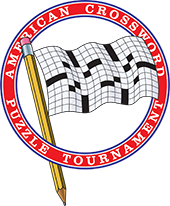Living on the Grid
Source: Philadelphia CityPaperDate: July 20-26, 2006
Byline: Shaun Brady
Living on the Grid
Word nerd Matt Gaffney puts it all in black and white.
INTERVIEW
Quick — what's a 14-letter word for "crossword puzzle creator"? If you've even heard of the word cruciverbalist, you're likely familiar with the type of puzzle fanatic Matt Gaffney profiles in his new book, Gridlock: Crossword Puzzles and the Mad Geniuses Who Create Them (Thunder's Mouth Press, $13.95). Gaffney himself is one of those mad geniuses, having constructed puzzles for the New York Times, Billboard and Slate, among others. He also edits Matt Jones' "Jonesin'" and "Psycho Sudoku" puzzles, which run in City Paper.
In the wake of the Sundance-approved Wordplay, crosswords may be regaining some of the geek-hip caché lost to sudoku. Gridlock begins on a train bound for the 2006 American Crossword Puzzle Tournament (one year after the tourney profiled in Wordplay), where Gaffney gets discouraged by the popularity of the upstart number game. The book goes on to profile a number of puzzle creators, including the New York Times' puzzle editor, media darling Will Shortz, and ends with a touching final chapter in which the author tracks down his reclusive hero, Henry Hook. Along the way, Gaffney fills in the technical details of puzzle creating and tells his own story in a conversational tone, ultimately coming up with a breezy memoir of a life in crosswords.
City Paper: Is the timing of your book and the film a defensive move against the popularity of sudoku?
Matt Gaffney: I guess you could say it is, in a way. Sudoku's fun, I enjoy it, but I find it a little off-putting that sudoku's gotten so popular so quickly. And I realize it's petty and pointless and stupid, and people are gonna solve what they want to solve and they should be allowed to, but goddammit, get back to the crosswords already.
CP: While writing the book, was the obsessive cruciverbalist side of your brain ever a distraction when you tried to express ideas rather than simply dissecting words into their constituent parts?
MG: It is a different thing, because crossword solving or crossword writing is really almost more of a mathematical thing than a language thing. I know this sounds weird, but there are all of these math people and computer people in crosswords, and you just don't find as many historians or English professors as you think you're gonna find.
CP: Gridlock talks quite a bit about Eugene Maleska, the former New York Times editor whose arcane clues were almost antagonistic to puzzle solvers. What do you see as the ideal relationship between creator and solver?
MG: I think the idea behind a crossword should be that it's a struggle to solve, but the ideal reaction after the person solves it should be, "Ah, I shoulda gotten that quicker!" What's satisfying is jogging just the right parts of the brain where it's a challenge for the person and they almost have to bring out information they didn't even know they knew.
CP: You paint the transition period between Maleska and Will Shortz [who took over in 1993 after Maleska's death] as representative of a struggle between a stodgier old guard and a "new wave" of creators more open to humor and pop culture references. Do you see a new generational change on the horizon?
MG: The new wavers are now the inmates who have taken over the asylum. What's really interesting is the way that certain editors and constructors are taking it to the next step through use of computers. That's certainly the wave of the future. There's three parts to writing a crossword: coming up with a theme, filling the grid and writing the clues. And computers can really only do the second part. So as we're seeing some of the focus being taken off the human filling the grid, you have more time for the human constructor to focus on cool clues and cool themes. Now the themes are their own problem, because they're becoming like a mountain that's been hacked away; all the minerals have been taken out and there's nothing left. But there are ways that editors are allowing more stretches and cheating the rules of crosswords to allow more interesting themes.
CP: One of the cardinal rules mentioned in your book and in Wordplay is the taboo on potentially offensive words. That taboo is being broken in alternative puzzles like "Jonesin,'" but as the years progress and we start seeing waves of tattooed grandmothers, will those walls begin to crumble?
MG: You know, they already have. Will Shortz is in his mid-50s, but you'll find words in the New York Times puzzle occasionally that would never have made it in before. He just had "scumbag" in the puzzle a couple of months ago, which caused kind of a stir. I mean, if scumbag is in the New York Times crossword puzzle, where do you go from there?

